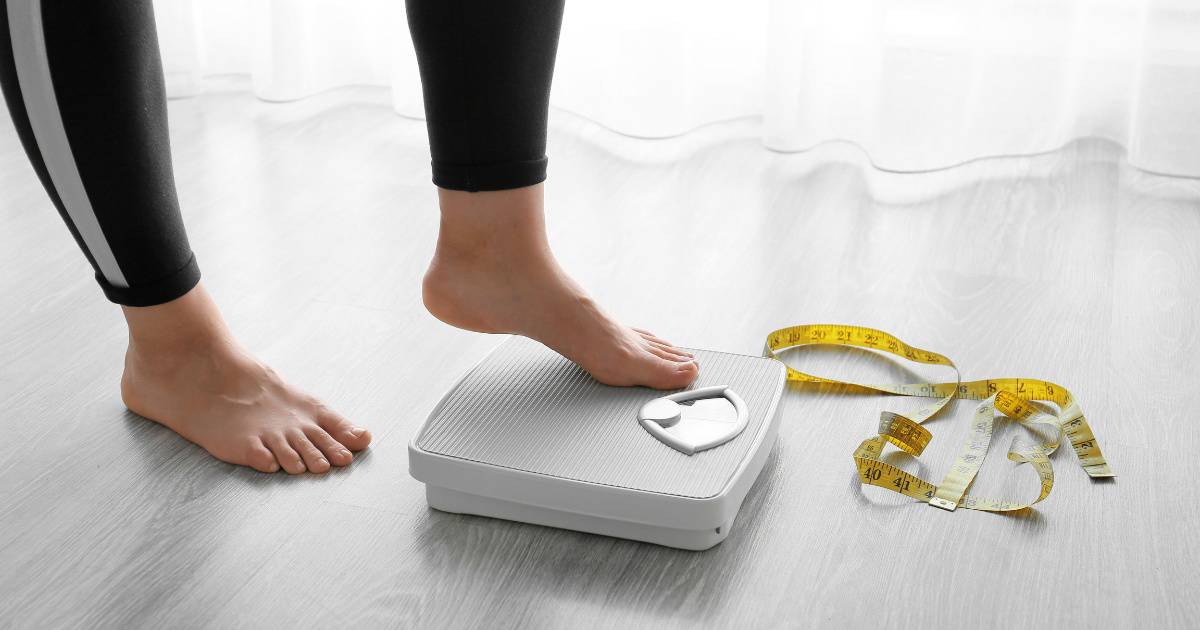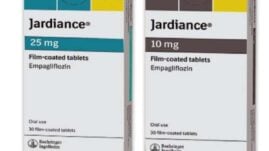
Jardiance, a commonly prescribed oral medication, is used to help manage blood sugar levels and A1c (a measure of glucose control over the previous 2 to 3 months) in people with type 2 diabetes.
Although it is not approved by the U.S. Food and Drug Administration (FDA) as a stand-alone weight-loss medication, many users report experiencing weight loss.
In this article, we will delve into everything you need to know about the relationship between Jardiance and weight loss, exploring how it occurs and what you can expect.
Table of Contents
- What is Jardiance?
- Can Jardiance help you lose weight?
- How does Jardiance help you lose weight?
- How quickly can you lose weight on Jardiance?
- What dose of Jardiance should I take for weight loss?
- What are the side effects?
- Who should not take Jardiance?
- Can Jardiance replace insulin?
- Are Jardiance and Rybelsus the same?
- Can I take Jardiance for weight loss if I don’t have diabetes?
- Can you gain weight on Jardiance?
What is Jardiance?
Jardiance, the brand name for empagliflozin, is a daily oral medication available in tablet form.
It is approved for use in people ages 10 years and up to manage type 2 diabetes.
As a sodium-glucose cotransporter 2 (SGLT-2) inhibitor, a type of medication also known as gliflozins, it helps lower blood glucose (sugar) by preventing glucose reabsorption in the kidneys.
Read more in: Everything You Need to Know About Jardiance.
Can Jardiance help you lose weight?
Yes, several studies have demonstrated that Jardiance can aid in weight loss.
Research indicates that people taking a 10-milligram (mg) daily dose of Jardiance lose an average of 2.5 percent of their body weight, while those on a 25-mg dose lose about 2.8 percent.
This equates to a weight loss of approximately 4 to 9 pounds for people weighing between 200 to 300 pounds.
Additionally, in clinical trials, participants who took Jardiance alone or with other diabetes drugs lost between 1.8 percent and 3.2 percent of their body weight over 24 weeks, and those who combined Jardiance with metformin lost an average of 3.9 percent of their body weight over 52 weeks.
Read more in: Jardiance and Metformin: Can You Take Them Together?
Notably, the SEESAW study — a randomized, double-blind, placebo-controlled trial — showed that combining a 25-mg daily dose of Jardiance with a calorie-restricted diet resulted in an average weight loss of 12.7 pounds over 24 weeks.
Further research has linked Jardiance to reductions in waist circumference and overall fat levels compared to a placebo (inactive treatment).
However, it’s important to note that the medication’s weight-loss effects are significantly improved by accompanying changes in diet and physical activity.
How does Jardiance help you lose weight?
Jardiance promotes weight loss through several mechanisms.
Primarily, it blocks the reabsorption of glucose in the kidneys. This action allows the body to expel excess sugar and calories through the urine.
Additionally, this interference with glucose reabsorption leads to mild diuresis, which is a slight increase in urination.
This increase in urination results in the excretion of excess water and sodium, contributing to weight loss, particularly noticeable when you first start taking the medication.
However, for weight loss to be effective and sustainable, Jardiance should be used in conjunction with a healthy diet and regular exercise. This combination helps maximize the benefits of Jardiance while promoting overall health.
How quickly can you lose weight on Jardiance?
Jardiance is intended for long-term management of type 2 diabetes and is not designed for rapid weight loss.
Initially, users may experience a quick drop of 2 to 3 pounds within the first few weeks, primarily due to increased urination and temporary fluid loss.
Subsequently, a more gradual weight loss of 1 to 2 pounds per month can be expected, although this is not guaranteed.
For weight loss to be effective and sustained, it is essential to combine Jardiance with a healthy diet and regular physical activity.
What dose of Jardiance should I take for weight loss?
Although Jardiance is not FDA-approved specifically for weight loss, it is available in two dosages: 10 mg and 25 mg, taken once daily.
The effectiveness of Jardiance can be dose-dependent; however, higher doses are not recommended solely for increasing weight loss due to the potential increased risk of side effects.
It is crucial to consult with your doctor to determine the appropriate dosage based on your medical history, lifestyle, and overall health goals, especially considering its primary use for managing type 2 diabetes.
See more in: Jardiance Dosage Guide: How Much Should You Take?
What are the side effects?
Jardiance can cause a variety of side effects, which usually diminish over time.
Common side effects include urinary tract and genital yeast infections, increased urination, joint pain, and nausea.
Rare but serious side effects may include low blood pressure, kidney damage, and severe infections.
Most side effects are manageable and tend to resolve quickly, but persistent or severe issues should be immediately discussed with a healthcare provider.
Learn more in: The Common and Serious Side Effects of Jardiance.
Who should not take Jardiance?
Jardiance should only be taken if prescribed by your doctor and is specifically approved for managing diabetes. It is not suitable for those without a diabetes diagnosis.
Those who are pregnant or planning to become pregnant should avoid Jardiance, as it is contraindicated during pregnancy.
Additionally, do not use Jardiance if you are allergic to empagliflozin or any other ingredient in the medication.
Always inform your doctor of all medications and supplements you are currently taking before starting Jardiance to avoid potential interactions and complications.
Can Jardiance replace insulin?
No, Jardiance is not a substitute for insulin.
While it helps lower blood sugar over time by eliminating excess glucose through urine, it does not manage acute blood sugar fluctuations like insulin does.
If you have been prescribed Jardiance, continue taking all other diabetes medications as directed by your doctor, unless advised otherwise.
Additionally, if you notice frequent episodes of low blood sugar while on Jardiance, this may indicate an increase in insulin sensitivity, requiring an adjustment to your insulin dosage.
Always speak with your healthcare provider about any changes in your condition or treatment plan, including adjustments to your medication or insulin doses to manage your blood sugar effectively.
Are Jardiance and Rybelsus the same?
No, Jardiance and Rybelsus (semaglutide) are not the same.
Although both are oral medications used to manage blood sugar levels in people with type 2 diabetes and can lead to modest weight loss, they belong to different drug classes with distinct mechanisms of action.
Jardiance is an SGLT-2 inhibitor, which helps eliminate glucose through urine, while Rybelsus is a GLP-1 agonist, which improves insulin secretion and delays stomach emptying.
Due to these differences, they have unique dosing schedules and are not interchangeable. It is important not to mix or swap these medications without medical advice.
Can I take Jardiance for weight loss if I don’t have diabetes?
It is not recommended to use Jardiance for weight loss if you do not have diabetes.
While it might result in modest weight loss, it is not approved as a weight loss medication and is primarily used to manage type 2 diabetes.
For those seeking weight-loss solutions without diabetes, FDA-approved medications specifically designed for this purpose, such as Wegovy, Saxenda, or Zepbound, might be more effective.
Always speak with your doctor to explore safe and appropriate weight loss medication alternatives based on your health needs.
Can you gain weight on Jardiance?
While it is possible, gaining weight while taking Jardiance is uncommon.
Jardiance primarily helps lower blood sugar and may lead to weight loss in most people due to its mechanism of promoting glucose excretion via urine.
However, responses to diabetes medications can vary significantly from person to person, and in rare cases, some might experience weight gain.
In contrast, other diabetes medications such as sulfonylureas, meglitinides, and insulin are more commonly associated with weight gain due to their effects on insulin levels and glucose storage.
Learn more in Everything You Need to Know About Jardiance. Did you find this article helpful? Click Yes or No below to let us know!




